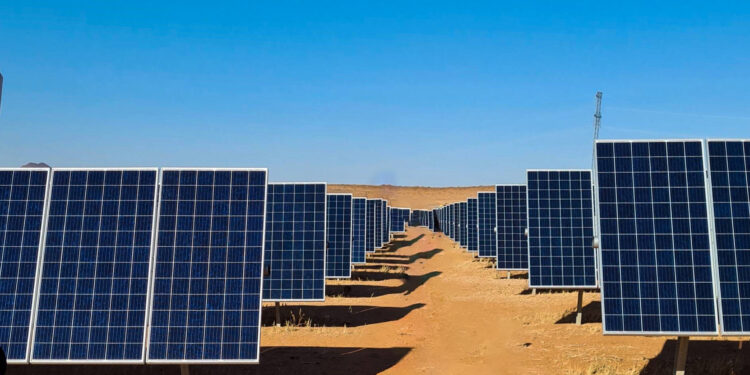Engie Sees African Renewables Industry as Ripe for Consolidation
The company’s acquisition of BTE Renewables from Actis, which it bought with Meridiam SAS, comes as large renewables companies look to bolster their position on the continent. The industry is also attracting new entrants.
- Advertisement -
Engie SA, the French utility that led a $1 billion buyout of a rival’s renewable energy assets in Africa last year, expects more deals to be seen in the industry across the continent.
While focusing on integrating the assets it bought from Actis LLP rather than seeking more acquisitions, Engie is looking to develop a pipeline of seven gigawatts of projects, said Mohamed Hoosen, the company’s managing director for Asia, Middle East and Africa. It may also invest in transmission projects in South Africa, once those are opened up for private participation, he said.
- Advertisement -
The company’s acquisition of BTE Renewables from Actis, which it bought with Meridiam SAS, comes as large renewables companies look to bolster their position on the continent. The industry is also attracting new entrants.
- Advertisement -
A unit of Old Mutual Ltd. is in talks with companies including BlackRock Inc. to sell a stake in one of the continent’s biggest renewable energy businesses, Bloomberg reported in June. Africa Finance Corp. and Egypt’s Infinity Group acquired Lekela Power in 2022 and Copenhagen Infrastructure Partners secured control of South Africa’s Mulilo Energy Holdings Ltd. last year. Mainstream Renewable Power is looking for an investor in its African projects and Red Rocket Pty Ltd. may sell its business.
“It’s inevitable that there’s going to be consolidation in the renewable space,” Hoosen said in an interview. “Renewables is a scale business, the bigger you are, the more you are developing, the more purchasing power you have in acquiring panels or wind turbines, you are better positioned to be competitive.”
The consolidation comes as the tariffs power producers are paid fall in South Africa, which has the continent’s biggest renewable energy industry, reducing returns for smaller companies, he said. Still, with a history of power cuts, there is substantial appetite for further projects to be developed, he said.
Engie plans to dispose of some assets as it focuses its African business on three key markets: South Africa, Egypt and Morocco. It’s looking to sell its stakes in two solar projects in Senegal, which have a combined capacity of about 60 megawatts.
“We are actually in an advanced stage with a party that is looking to acquire our stake in those projects,” Hoosen said. “We have no intentions of pursuing options in other countries in Africa” aside from the three we have chosen, he added, citing the maturity of those markets, national policies geared toward reducing emissions and the protection of legal rights pertaining to contracts.
- Advertisement -
Of the company’s pipeline of potential projects, three gigawatts are in North Africa while four gigawatts are in South Africa. The portfolio, which is about evenly split between wind and solar, would cost billions of dollars to construct if pursued, said Hoosen. It would cost about $1 million per megawatt of wind power developed and $750,000 for the same unit of solar power, he said.
Transmission Gridlock
The company already has about 3.7 gigawatts of generating capacity operational across the continent and more than a gigawatt in the process of being developed, a graphic on its website shows.
Still, development plans in South Africa are constrained by the inability of the grid to take on large amounts of additional power, especially in the western half of the country where the country’s best solar and wind power potential lies. While the government is yet to say how that will be resolved, Engie sees opportunities once a grid-expansion project goes ahead.
“There’s a gridlock in the country and I think the authorities have already indicated that to unlock the transmission challenges that they face, they’re looking to the private sector,” Hoosen said. “Engie would look at that opportunity because we do have a very successful business that makes investments in transmission infrastructure.”
In the short term, Hoosen urged South Africa to allow a policy of curtailment on its power grid, which would allow more renewable energy producers to connect to the grid on condition that at times of peak supply, they don’t send all the power they produce to it.
Source:norvanreports.com
- Advertisement -


